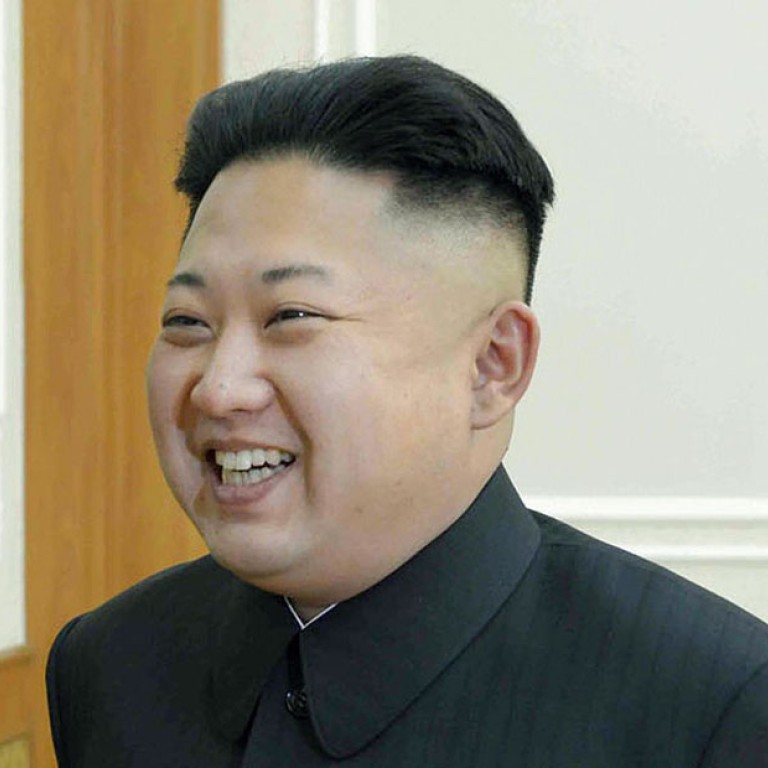
Mad, bad North Korea may just be an act
Donald Kirk believes nation's leaders desperate to rescue economy while staying tough with foes
One day North Korea's military command orders live-fire artillery and missile exercises off its east coast, and the next day South Korea says fairly soon firms from the country will be shipping products to and though the North's special economic zones.
Against this background, the question is whether Kim Jong-un is mad - or desperately trying to consolidate his power.
President Barack Obama caught the essence of doubts about the sanity of Kim, scion of the dynasty founded by his grandfather "Great Leader" Kim Il-sung in 1945, when he compared the North's behaviour with that of Iran, finding that Iran's leaders were rational while North Korea's were not. "If you look at Iranian behaviour, they are strategic," Obama remarked. Iran might embrace "ideas that I find abhorrent, but they're not North Korea".
If North Korea represents an extreme, however, conflicting reports about North Korea's current behaviour share a common denominator - the quest by its leaders to rescue their crumbling economy while sticking to the appearance of a tough policy against historic foes.
North Korean strategists - no one is quite certain who they really are - may be considerably more sophisticated than Obama thinks. Their underlying pragmatism was evident last month when the North abandoned its threat to cancel the first reunions since 2010 of families divided by the Korean War unless the US and South Korea called off their planned military exercises.
The next test of North Korea as a rational actor is whether the North will accept the plea of South Korea's President Park Geun-hye for regular reunions. The North for the moment is rejecting her plea, passing on word that the atmosphere is not appropriate. That response appears calculated, along with the missile tests, to show North Korea's displeasure with US-South Korea exercises.
Once the war games are over next month, however, talks on more reunions are likely to resume. The reason is basic: all the reunions are held in the North's Mount Kumgang tourist zone, closed by South Korea to ordinary tours from the South since a soldier nearly six years ago shot and killed a South Korean woman who had strayed outside the tourist area. North Korea badly wants tours to resume as a source of much-needed income.
Whatever it does, North Korea seems to be modulating decisions in order to draw aid, trade and investment from South Korea. The North seems especially concerned as China, its only ally, tries to exercise control by cutting down on aid and delaying payment on financial deals.
South Koreans believe by next year South Korean companies will be shipping products to the Rason special economic zone in northeastern North Korea. That would mark a major step towards co-operation - more significant perhaps than the zone at Kaesong, across the border 65 kilometres north of Seoul, where 50,000 North Korean workers toil in factories owned by 120 South Korean companies.
South Korea's unification minister Ryoo Kihl-jae predicts that South Korean products will move by rail from Rason to Russia and on to Europe by the trans-Siberian railway. North Korea would profit immensely as the entrepôt.
As always, North Korea remains anxious to disrupt the US-South Korea alliance and pressure the US to withdraw its 28,500 troops. That's why the North test-fires missiles and artillery while refusing to abandon its nuclear programme.
But how rational is it to spend billions on weaponry while most of the country's 25 million people exist in grinding poverty?
"They're rational actors," says Dean Ouellette at the University of North Korean Studies in Seoul. "They have their own goals in mind. One was to build a nuclear deterrent." Why? "They felt they could never establish a relationship of trust" with the US, he said.
The execution of top aide Jang Song-thaek and the forging of deals with China indicates the desperation of the North's young "Supreme Leader" Kim Jong-un. While Kim consolidates power, his birthday bash in January, featuring an inebriated Dennis Rodman and NBA all-stars, casts doubts about his common sense.
"Bad, mad, sad or rational actor," Hazel Smith, professor at the University of Central Lancashire in England speculated in a paper she wrote a dozen years ago. Asked whether the same question is relevant now, she responded in an e-mail citing "shifting factions within the political elite based on fairly opportunistic alliances".
Factional strife breaks out in draconian purges, but they have little to do with decisions on policies vis-à-vis the US or South Korea or even China. If nothing else, North Korean policymakers seem to have agreed on the need to deal with economic issues behind a front of incipient crisis and confrontation with historic foes that might be able to bail the country out of economic chaos.

